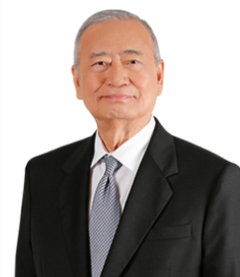-
Audit approach overview
Our audit approach will allow our client's accounting personnel to make the maximum contribution to the audit effort without compromising their ongoing responsibilities
-
Annual and short period audit
At P&A Grant Thornton, we provide annual and short period financial statement audit services that go beyond the normal expectations of our clients. We believe strongly that our best work comes from combining outstanding technical expertise, knowledge and ability with exceptional client-focused service.
-
Review engagement
A review involves limited investigation with a narrower scope than an audit, and is undertaken for the purpose of providing limited assurance that the management’s representations are in accordance with identified financial reporting standards. Our professionals recognize that in order to conduct a quality financial statement review, it is important to look beyond the accounting entries to the underlying activities and operations that give rise to them.
-
Other Related Services
We make it a point to keep our clients abreast of the developments and updates relating to the growing complexities in the accounting world. We offer seminars and trainings on audit- and tax-related matters, such as updates on Accounting Standards, new pronouncements and Bureau of Internal Revenue (BIR) issuances, as well as other developments that affect our clients’ businesses.
-
Tax advisory
With our knowledge of tax laws and audit procedures, we help safeguard the substantive and procedural rights of taxpayers and prevent unwarranted assessments.
-
Tax compliance
We aim to minimize the impact of taxation, enabling you to maximize your potential savings and to expand your business.
-
Corporate services
For clients that want to do business in the Philippines, we assist in determining the appropriate and tax-efficient operating business or investment vehicle and structure to address the objectives of the investor, as well as related incorporation issues.
-
Tax education and advocacy
Our advocacy work focuses on clarifying the interpretation of laws and regulations, suggesting measures to increasingly ease tax compliance, and protecting taxpayer’s rights.
-
Business risk services
Our business risk services cover a wide range of solutions that assist you in identifying, addressing and monitoring risks in your business. Such solutions include external quality assessments of your Internal Audit activities' conformance with standards as well as evaluating its readiness for such an external assessment.
-
Business consulting services
Our business consulting services are aimed at addressing concerns in your operations, processes and systems. Using our extensive knowledge of various industries, we can take a close look at your business processes as we create solutions that can help you mitigate risks to meet your objectives, promote efficiency, and beef up controls.
-
Transaction services
Transaction advisory includes all of our services specifically directed at assisting in investment, mergers and acquisitions, and financing transactions between and among businesses, lenders and governments. Such services include, among others, due diligence reviews, project feasibility studies, financial modelling, model audits and valuation.
-
Forensic advisory
Our forensic advisory services include assessing your vulnerability to fraud and identifying fraud risk factors, and recommending practical solutions to eliminate the gaps. We also provide investigative services to detect and quantify fraud and corruption and to trace assets and data that may have been lost in a fraud event.
-
Cyber advisory
Our focus is to help you identify and manage the cyber risks you might be facing within your organization. Our team can provide detailed, actionable insight that incorporates industry best practices and standards to strengthen your cybersecurity position and help you make informed decisions.
-
ProActive Hotline
Providing support in preventing and detecting fraud by creating a safe and secure whistleblowing system to promote integrity and honesty in the organisation.
-
Accounting services
At P&A Grant Thornton, we handle accounting services for several companies from a wide range of industries. Our approach is highly flexible. You may opt to outsource all your accounting functions, or pass on to us choice activities.
-
Staff augmentation services
We offer Staff Augmentation services where our staff, under the direction and supervision of the company’s officers, perform accounting and accounting-related work.
-
Payroll Processing
Payroll processing services are provided by P&A Grant Thornton Outsourcing Inc. More and more companies are beginning to realize the benefits of outsourcing their noncore activities, and the first to be outsourced is usually the payroll function. Payroll is easy to carve out from the rest of the business since it is usually independent of the other activities or functions within the Accounting Department.
-
Our values
Grant Thornton prides itself on being a values-driven organisation and we have more than 38,500 people in over 130 countries who are passionately committed to these values.
-
Global culture
Our people tell us that our global culture is one of the biggest attractions of a career with Grant Thornton.
-
Learning & development
At Grant Thornton we believe learning and development opportunities allow you to perform at your best every day. And when you are at your best, we are the best at serving our clients
-
Global talent mobility
One of the biggest attractions of a career with Grant Thornton is the opportunity to work on cross-border projects all over the world.
-
Diversity
Diversity helps us meet the demands of a changing world. We value the fact that our people come from all walks of life and that this diversity of experience and perspective makes our organisation stronger as a result.
-
In the community
Many Grant Thornton member firms provide a range of inspirational and generous services to the communities they serve.
-
Behind the Numbers: People of P&A Grant Thornton
Discover the inspiring stories of the individuals who make up our vibrant community. From seasoned veterans to fresh faces, the Purple Tribe is a diverse team united by a shared passion.
-
Fresh Graduates
Fresh Graduates
-
Students
Whether you are starting your career as a graduate or school leaver, P&A Grant Thornton can give you a flying start. We are ambitious. Take the fact that we’re the world’s fastest-growing global accountancy organisation. For our people, that means access to a global organisation and the chance to collaborate with more than 40,000 colleagues around the world. And potentially work in different countries and experience other cultures.
-
Experienced hires
P&A Grant Thornton offers something you can't find anywhere else. This is the opportunity to develop your ideas and thinking while having your efforts recognised from day one. We value the skills and knowledge you bring to Grant Thornton as an experienced professional and look forward to supporting you as you grow you career with our organisation.
WE need the right leader to make the many programs articulated in this commentary series happen.
Unfortunately, we cannot find that person from the present cohort of political leaders. These present leaders are trapped in the current self-serving political practices such as perpetuation of political power, abuse of power in various forms, pork barrel budget allocations, corruption and prevention of legislations that seek to check or prevent such self-serving practices.
Because of the preoccupation with these self-serving practices, making the government to work efficiently is neglected; and conspiracy in lower-level corruption is given a blind eye.
As a result of all these, funds that are needed for the general welfare and betterment of the lives of the people become limited and inadequate. For this reason, poverty, homelessness, child stunting, poor education, inadequate health services, environmental neglect and other similar bad conditions abound and persist over a long period of time.
Self-serving practices
These self-serving practices tend to bind political leaders together for a common purpose, whether they consciously realize it or do it together or not.
This is the reason why political parties are weak. They exist just for convenience and with barely any meaningful ideology to propagate and distinguish one from the others. As a result, politicians move from one political party to another or create new parties with ease, like changing clothes, to achieve a personal purpose.
This condition - together with the lack of a requirement for the winner in a presidential election contest to have a majority vote - attracts several candidates to run for election for the post. Therefore, when elected, the president does not have a large political following. He does not need to. Because when he is elected, politicians of every color coalesce around him instantaneously and he immediately gets a majority in the legislature. Obviously, the motivation for this instant collaboration is political favor or expectation of such favor. There exists an implicit understanding of give-and-take, devoid of any political or social ideology.
As such, a line is drawn that any president does not want to cross. This inhibition deters him from making the necessary transformation our country badly needs as presented and articulated in this commentary series.
Additionally, practically every politician has skeletons in his closet. For this reason, a strong and effective opposition against the ruling coalition does not emerge because of fear of retaliation. As a result, there exists no effective check on the ruling power a properly functioning democratic government system requires. There is no potent force that can influence to change the course of a potentially detrimental action.
Head start
So, are we stuck? Maybe. From a world historical perspective. The foregoing scenario brings into focus a view that political maturation must evolve over a long period of time, just like how it developed in Europe.
Fortunately, we have a bit of a head start. Counting from 1946 when our present uninterrupted independence began, we have 75 less years to travel. We may then skip creating the likes of a King John with his own equivalent of the King's Magna Carta. Not unless, of course, someone like a Ferdinand Marcos reappears.
But what about the United States, Canada, Australia, New Zealand and Israel? It did not take them a long time to develop.
Well, the reason is clear and simple. The people who founded these countries already possessed developed culture and skills when they settled into their new places. Moreover, they killed off many of the natives they found living there and drove away the remaining ones to the hinterlands so the immigrant settlers became free to do what they wanted.
What about Singapore? Same reason. The settlers in that country have inherited the culture and skills that have developed over thousands of years in their native land. They did not need to kill anybody because they found themselves to already have a super majority and the minority acquiesced to their dominance.
These questions also bring to mind an opposite challenging scenario that is instructive to the Philippines' own political development. Most of the Latin American countries obtained their independence from Spain and Portugal in the 1820s and 1830s, about 200 years ago. They are generally economically better than us today, but many of them continue to struggle currently.
That said, maybe we should still challenge that historical view and cut short the political evolution process. We may use as reference other countries that may have already done so, although they may have their own enabling unique characteristics, like Malaysia and Thailand, whose per capita gross domestic product (GDP) are a few multiples more than ours. And also, Vietnam, which is well on its way to surpassing us in per capita GDP.
Transformative leader
For us, the immediate opportunity is in the coming presidential election. We all know the potential candidates and we have our own views about each of them.
Regrettably, my own assessment is consistent with my earlier expressed view that the transformative leader we are seeking will not come from this pool of potential candidates.
I doubt very much whether any one of these potential candidates has the conviction, desire, determination and skill to break the current political practices I described earlier which have brought very harmful effects to our society over these past many years. Without breaking these current self-serving political practices, I sincerely doubt whether we can make good and sustainable progress.
For these reasons, in my opinion, the only way possible to cut the political evolution time is to elect a strong and effective president who comes from outside of the present circle of political leaders. But the barrier to entry for such a person is huge and practically insurmountable. To attract such persons to enter a presidential contest, we must develop alternative ways to ease up the barrier to entry. But then again, any chosen alternative will need to be allowed and approved by the present political leaders. So, we are stuck again!
We are back to the theory of long evolution of political maturation.
Or, we can do the only thing left for us to do under the circumstances. Make a wish.
Maybe, if not in 2022, a strong and transformative Filipino leader can break the long period of political evolution and emerge like a bulalakaw (comet) and crush the seemingly impenetrable barrier to entry in 2028 or in the next few presidential cycles.
To whoever that person is, I hope the programs articulated in this commentary series which are sincerely intended to be implemented, will help.
As published in The Manila Times, dated 31 August 2021




